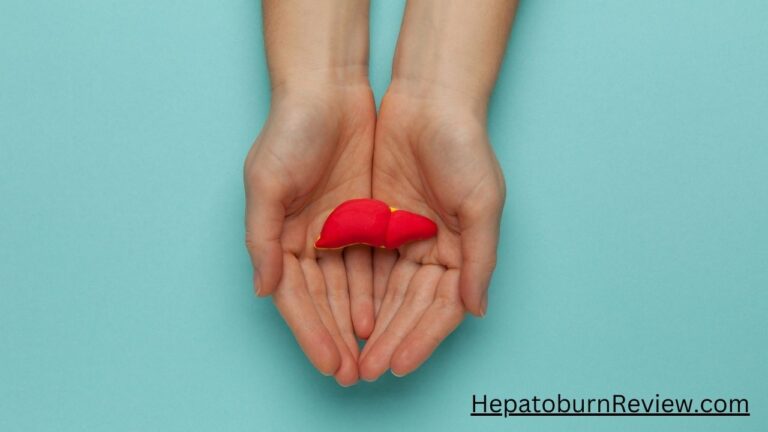Book Appointment Now

How Liver Health Affects Weight Gain in Women
Table of Contents
Let’s be real for a second. Have you ever felt like no matter how hard you try—whether it’s cutting carbs, sweating it out at the gym, or trying every diet under the sun—that stubborn belly fat just won’t go away? You’re not alone. Millions of women around the world are in the same boat, and trust me, it’s not your fault.
Turns out, there’s something most people don’t talk about when it comes to weight loss: your liver . Yep, that little organ tucked away on the right side of your body is actually the real boss when it comes to burning fat and keeping your metabolism running smoothly. If your liver isn’t working right, no amount of dieting or exercising will help you lose weight. Crazy, right? Let me explain.
What Does Your Liver Actually Do?
First things first, let’s break down what your liver does. Think of your liver as the body’s personal “clean-up crew.” Its job is to detoxify all the junk you’re exposed to every day—things like processed foods, alcohol, medications, and even pollution from the air you breathe. But here’s the kicker: your liver doesn’t just clean up toxins—it’s also your body’s fat-burning furnace .
Here’s how it works:
- Everything you eat or drink eventually gets sent to your liver.
- Once there, your liver decides whether to turn that food into energy (so you can use it to run, think, and live) or store it as fat.
If your liver is healthy and functioning well, it burns calories like a champ. But if your liver is clogged with toxins or damaged, it starts storing more calories as fat instead of using them for energy. And guess where that fat goes? Straight to your belly, hips, and thighs.
Why Are Women More Vulnerable to Liver-Related Weight Gain?
Now, here’s where it gets interesting. Women are actually more prone to liver-related weight gain than men, and there are a few reasons why:
Hormonal Rollercoaster
Women go through hormonal changes throughout their lives—think puberty, pregnancy, perimenopause, and menopause. These hormonal shifts can mess with how fat is stored in the body. For example, estrogen dominance (when you have too much estrogen compared to other hormones) can lead to fat being stored around the belly. And guess what? A compromised liver struggles to process excess hormones, making the problem worse.
Stress and Emotional Eating
Let’s face it—life can be stressful, especially for women juggling work, family, and everything in between. Chronic stress raises cortisol levels, which tells your body to store fat, especially around the abdomen. A stressed-out liver can’t detoxify cortisol effectively, creating a vicious cycle of weight gain and fatigue.
Aging and Liver Efficiency
As we age, our liver naturally becomes less efficient at detoxifying and metabolizing fats. Combine that with modern lifestyle factors like processed foods, alcohol, and medications, and you’ve got a recipe for weight gain.
The Modern-Day Threats to Your Liver
You might be wondering, “Why is my liver struggling so much?” Well, the truth is, we live in a world full of liver-damaging substances. Here are some of the biggest culprits:
- Processed Foods : High sugar, artificial sweeteners, and preservatives overload your liver.
- Alcohol : Even moderate drinking can damage liver cells over time.
- Medications : Common painkillers like Tylenol and Advil can harm your liver if used excessively.
- Environmental Toxins : Pesticides, herbicides, and pollutants in the air and water are everywhere.
- Household Products : Cleaning supplies, cosmetics, and even sunscreen often contain chemicals that harm your liver.
According to the Environmental Protection Agency (EPA), there are over 85,000 liver-compromising toxins in our environment today. That’s a lot of junk for your liver to handle!
Signs Your Liver Might Be Struggling
How do you know if your liver is compromised? Here are some common signs:
- Stubborn Belly Fat : No matter how much you diet or exercise, it just won’t budge.
- Low Energy : Feeling tired all the time, even after a full night’s sleep.
- Digestive Issues : Bloating, gas, or constipation.
- Poor Sleep : Waking up feeling groggy and unrested.
- Brain Fog : Trouble focusing or remembering things.
If any of these sound familiar, your liver might need some TLC.
The Science Behind Liver Health and Weight Loss
Okay, now let’s get nerdy for a minute. Studies show that compromised liver function is the hidden root cause of slow metabolism and stubborn belly fat. Here’s the science in simple terms:
- Hepatocytes : These are the liver cells responsible for processing food and fat into energy. In overweight people, these cells are 14 times less efficient at doing their job compared to people who are naturally lean.
- Toxic Buildup : Years of exposure to toxins clog up your liver, making it harder for it to burn fat.
- Fat-Burning Blockade : When your liver is overwhelmed, it sends signals to your fat cells to stop releasing fat. This evolutionary mechanism protects your liver but locks fat onto your body instead.
In short, if your liver isn’t working properly, it’s like trying to drive a car with a clogged engine—it just won’t run efficiently.
How to Support Your Liver for Effective Weight Loss
The good news? You can heal your liver and kickstart your fat-burning furnace. Here’s how:
Diet and Nutrition
- Eat liver-friendly foods like leafy greens (spinach, kale), berries, citrus fruits, and healthy fats (avocado, olive oil).
- Avoid processed foods, high sugar, and excessive alcohol.
Supplements That Work
There are certain nutrients and plant extracts that are scientifically proven to support liver health and fat burning. For example:
- Resveratrol : Found in red wine, this compound mimics the effects of exercise by boosting metabolism.
- Silymarin : Protects and regenerates liver cells.
- Choline : Helps transport fat out of the liver and boosts metabolism by up to 400% .
One product that combines all these ingredients is Hepatoburn , a liver-optimizing formula designed to detoxify your liver and reignite fat burning. Thousands of women have already seen incredible results with it.
Lifestyle Changes
- Stay hydrated to flush out toxins.
- Get quality sleep to support liver regeneration.
- Reduce stress through yoga, meditation, or deep breathing exercises.
Here is a 7-Day Herbal Liver Detox Plan for amazing results.
Real-Life Success Stories
Still skeptical? Let’s look at some real-life examples:
- Paula’s Story : After struggling with 58 pounds of stubborn fat for over a decade, Paula tried everything—diets, exercise, even a Peloton bike. Nothing worked until she discovered a liver-optimizing solution. Within weeks, she lost 62 pounds and dropped six dress sizes.
- Sarah’s Transformation : Sarah, 42, lost 42 pounds in three months without dieting or exercising. She said, “I feel incredible. I can actually see my abs for the first time in my life!”
These stories aren’t anomalies—they’re proof that healing your liver can transform your body.
Action Steps: What You Can Do Today
Ready to take control of your weight and your health? Here’s what you can do right now:
- Assess Your Liver Health : Look for symptoms like stubborn belly fat, low energy, or digestive issues.
- Start Small : Add liver-supportive foods to your diet and reduce exposure to toxins.
- Consider a Liver-Optimizing Solution : Products like Hepatoburn are scientifically backed and easy to incorporate into your daily routine.
Remember, your liver holds the key to unlocking your body’s natural fat-burning potential. Heal it, and watch the transformation unfold.
Your liver isn’t just a detox organ—it’s the mastermind behind your metabolism and fat-burning abilities. If you’ve been struggling with weight gain, it’s time to shift your focus from counting calories to supporting your liver. By making small changes to your diet, lifestyle, and supplement routine, you can heal your liver, boost your metabolism, and finally say goodbye to stubborn belly fat.
So, are you ready to take the first step toward a healthier, happier you? Your liver—and your body—will thank you.


